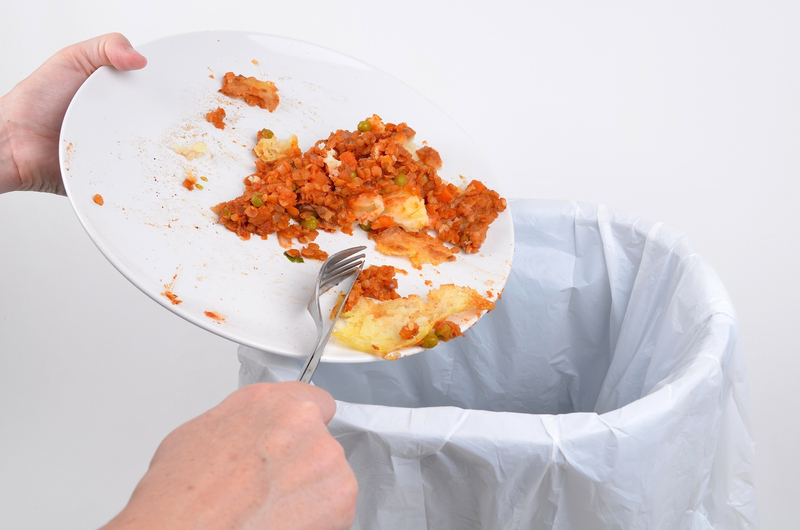How to Avoid Overpaying for Bulky Waste Items Disposal
Disposing of bulky waste items, such as old furniture, mattresses, appliances, or garden debris, can often feel more stressful than getting rid of regular household trash. Not only do these items require special handling and transportation, but costs for their removal can also be surprisingly high if you're not careful. If you want to manage your bulky waste disposal in a budget-friendly way, this in-depth guide will walk you through everything you need to know about avoid overpaying for bulky waste items disposal.
Understanding Bulky Waste: What Counts as Bulky Waste?
Before diving into how to save money, it's important to differentiate between bulky waste and standard household trash. Bulky waste usually refers to large items that can't fit in regular waste bins or who require special handling for environmental or safety reasons. Some common examples include:
- Old sofas, chairs, and dining sets
- Mattresses and box springs
- Refrigerators, washing machines, ovens, and other large appliances
- Rugs and large carpets
- Musical instruments (e.g., pianos)
- Garden waste (branches, logs)
- Doors, windows, construction materials
Disposing of these items incorrectly can cost you significantly more, both in fines and removal fees. That's why it's important to choose the right method for bulky waste disposal and avoid unnecessary expenses.

Why Bulky Waste Disposal Can Be So Expensive
There are several reasons why getting rid of oversized items comes with a higher price tag:
- Special handling and logistics: Bulky items are heavy, hard to maneuver, and often require two or more people to move. Specialized vehicles are needed for pickup and transport.
- Municipal disposal fees: Many city services charge additional fees for collection or ask residents to pay per item or for a special permit.
- Environmental regulations: Items like electronics or appliances may have hazardous components requiring special disposal methods, which adds to the cost.
- Landfill charges: Dumping large items at a landfill can be expensive since some materials are charged by weight or size.
- Private hauler markup: Hiring a private junk removal service can be fast and easy, but these companies often charge high premiums for convenience and labor.
However, there are proven, cost-effective ways to dispose of bulky waste items without breaking the bank.
Key Strategies to Avoid Overpaying for Bulky Waste Disposal
1. Know Your Local Bulky Waste Collection Policies
Research your city or municipality's regulations regarding large item pick-up. Many regions provide free or subsidized collection of certain bulky waste items, either on a scheduled basis or by appointment. Some questions to answer:
- Is there an annual or quarterly free pick-up for large waste?
- Do you need to schedule a collection, or is there a designated day?
- Are there restrictions on the number and type of items per collection?
- Are certain items (e.g., electronics, mattresses) excluded or subject to extra fees?
- Is proof of residency required for free service?
Tip: Check your local council's website or call their waste management hotline. This simple step can save you money on bulky item disposal by taking advantage of services already covered by local taxes or fees.
2. Sell or Donate Usable Items
Before paying for bulky waste removal, consider whether your old furniture, appliances, or equipment can be reused. You may be able to:
- Donate to charity: Many organizations will collect large items for free if they are in usable condition. This includes furniture banks, the Salvation Army, Habitat for Humanity, and local shelters.
- Sell online: Platforms like Craigslist, Facebook Marketplace, or OfferUp allow you to sell or give away items. Some buyers will pick them up right from your home, saving you the effort and cost.
- Offer for free on neighborhood apps like Nextdoor, where someone may be glad to collect what you no longer need.
Donating or selling means you avoid disposal fees AND help reduce waste. It's good for your wallet and the environment!
3. Compare Private Junk Removal Companies
If municipal collection isn't an option or your timeline is tight, you may need to hire a junk removal service for bulky waste. But prices can vary widely--sometimes even hundreds of dollars for the same load.
Best practices for cost-effective hiring:
- Get quotes in writing from at least 3 reputable providers.
- Check online reviews and local ratings for reliability and transparency.
- Request a detailed breakdown of charges (labor, transport, disposal fees).
- Ask about discounts for single-item pickups or grouping items with neighbors.
- Confirm if large appliance removal or hazardous item handling has extra fees.
Never rely solely on broad "per truckload" estimates--an on-site quote is always more accurate and shields you from surprise charges.
4. DIY Disposal: Rent a Truck or Dumpster
If you have multiple bulky items, consider the do-it-yourself disposal route:
- Rent a pickup truck or trailer for a few hours. This is often much cheaper than hiring a junk removal service, especially for easy-to-move items.
- Ask your local landfill or recycling center about their rates and requirements for accepting bulky waste. Many offer set fees per load or discounted resident rates.
- For larger jobs, renting a mini dumpster can be a cost-effective solution, particularly if you're cleaning out a garage or preparing for a move.
*Safety tip:* Bring help to lift heavy items and wear proper gear to avoid injury and damage.
5. Schedule Disposal During Free Community Events
Many localities host free bulky waste drop-off days or special clean-up events for residents. These can be excellent opportunities to dispose of large items without fees.
- Check community calendars or your city's waste management website for upcoming events.
- Common items accepted: old furniture, large electronics, garden waste, and sometimes building materials.
- Arrive early--spaces can fill quickly, and some items are accepted on a first-come, first-served basis.
Utilizing community disposal events is a top strategy to avoid overpaying for bulky waste disposal in your area.
Additional Ways to Lower Your Bulky Waste Disposal Cost
Break Down Items
If allowed, disassemble large items before disposal. For example, take apart bed frames, remove sofa legs, or break mattresses into smaller parts. This often reduces the volume or weight, potentially qualifying you for lower fees or easier handling.
Negotiate Bulk Pricing for Multiple Items
If you and your neighbors or family members need to get rid of several bulky items at once, try to:
- Pool your items and request a group discount from private haulers
- Share transport costs if renting a truck or dumpster
- Coordinate with your HOA or local block association for a collective disposal
*Bulk rates are often significantly less per item than paying for individual pickups.*
Check for Subsidized Recycling Programs
Many cities or manufacturers offer free or low-cost appliance recycling to residents. For example:
- Utilities sometimes provide free refrigerator or air conditioner pick-up when buying a new model.
- Electronics retailers may accept old TVs and monitors for recycling as part of an E-waste program.
- Mattress recycling programs may offer cheaper disposal than landfill dumping.
Contact manufacturers directly or visit local recycling centers to inquire about these subsidized programs.
The Most Common Mistakes That Lead to Overpaying for Bulky Waste Disposal
Even the most careful homeowners and renters can fall into expensive disposal traps. Here are the most common missteps:
- Not researching free collection days or municipal policies
- Paying high hauler fees for items that could be donated or recycled
- Waiting until the last minute (rush jobs always cost more)
- Not breaking down items to reduce their volume
- Assuming DIY is always cheaper--sometimes hidden landfill or rental fees add up
Avoid these pitfalls by planning bulky waste disposal ahead of time and comparing all your options.
Top Tips for Saving Money on Bulky Waste Removal
- Ask about free disposal options first
- Sell, donate, or give away usable items
- Break down or compact items before pickup
- Compare at least three quotes from removal services
- Schedule pickups during off-peak times, if possible
- Use community collection events
- Pool resources with neighbors for larger discounts
Eco-Friendly Bulky Waste Disposal: Save Money and the Planet
Responsible large item disposal isn't just about saving money--it's also about sustainability. By reusing, recycling, or properly processing your waste, you help reduce landfill overflow and support eco-friendly initiatives.
- Ask recyclers if they can reclaim parts or materials from old furnishings or appliances
- Confirm that haulers use environmentally sound disposal practices
- Use green disposal days or events when possible
Remember, avoiding unnecessary disposal fees also means making thoughtful choices about your purchases. Buy long-lasting, modular, or reusable furniture whenever possible to minimize future bulky waste.

Frequently Asked Questions About Bulky Waste Disposal and Costs
Q: How much does it typically cost to dispose of bulky waste?
A: Costs can range from free (for municipal or event-based pickup) to $50-$200 per item with private junk haulers, depending on the size, weight, materials, and your location. Shopping around and using community options can often save you hundreds of dollars.
Q: Are there items that are always free to dispose of?
A: Old electronics, appliances, or mattresses may be free to dispose of through manufacturer take-back programs, local recycling centers, or municipal e-waste days.
Q: Can I leave bulky waste on the curb?
A: Never leave large items on the street unless your city explicitly allows it on designated collection days. Illegal dumping can result in hefty fines and irritate neighbors.
Q: Is DIY always cheaper than hiring a hauler?
A: Not always--while renting a truck is sometimes cost-effective, remember to factor in fuel, possible dumping fees, rental insurance, and your own labor time.
Q: Are there any government rebates for recycling bulky waste?
A: Some areas offer rebates or vouchers for recycling major appliances or mattresses. Check your local government and utility company websites for details.
Conclusion: Smart Moves for Affordable Bulky Waste Disposal
With a little research and creative planning, you can avoid overpaying for bulky waste items disposal while also helping the environment. Check local collection policies, reuse or donate whenever possible, and compare your options before committing to any service or fee. By following the strategies in this guide, you'll keep your costs down and your conscience clear the next time you need to get rid of those oversized household items.
Do you have tips for saving money on bulky waste disposal? Share your advice in the comments to help others in your community!